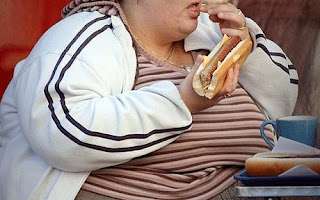“No one realizes how beautiful it is to travel until he comes home and rests his head on his old, familiar pillow. ”
Lin Yutang
If one already has visas and insurance in place, then it is a simple matter to prepare for such a trip, even when that trip is planned over a period of months rather than weeks. I am sometimes asked by friends and relatives how I set about these things. The answer is surprisingly straightforward; once one has completed such technicalities as visas, insurance and funds, it is simply a matter of getting on a train, then a plane, then….well, that's it...really, that is all there is to it. In the interconnected world in which we live today, such travel is no longer that much of a challenge. Indeed, I would go so far as to say that the biggest part of the challenge is the ennui of long journeys on aircraft. Personally, I usually find the 'entertainment' on offer through various films and TV shows very dull, the films being almost invariably of the more commercial type, popular but vacuous. Every now and then a little gem somehow sneaks in, but often as not I scarcely bother these days. Thank heavens for the invention of the e-reader! With this in hand I find I can happily wile away many an hour tucking into the delights of Henry Miller or Anais Nin, or any one of about fifty authors that I am currently indulging in, whilst suspended 40,000 feet above the planet's surface.
In retrospect, I think that the return to the UK at this time of year was perhaps not the best notion that every crossed my mind. The pleasurable part has been catching up with various friends. Oddly, it seems to matter little how far one has travelled or what adventures one has indulged in, on return such relationships, after an obligatory handshake or hug, return to much the same as they were before. This is something that I appreciate very much. Time and distance seem to make little difference, the core of such friendships remains essentially unaffected.
The country itself...hmm, let us just say that absence makes the heart grow fonder, whilst confrontation with the reality of its fundamentally parochial nature, its class struggles, its asinine politics and, on a more banal note, just how cold it is this time of year, soon dissipate one's delusions about the place. The UK can be a very beautiful country, from the end of April to the end of September. If one is fortunate, even October can be reasonably pleasant, the rest of the year it is a struggle simply to survive the cold, the wet, the wind, the mud, the ice and the snow. The days themselves are incredibly short at this time of year, seemingly consisting of a sunrise and a sunset, with scarcely anything in between.
The inward-looking nature of the country can also be a tad wearisome, the somewhat dated beliefs as to its significance bearing little relation to today's reality. There was a time, many, many moons ago now, when Britain was indeed very influential on a global scale. Whether this influence was at all beneficial is another matter. Much of what was done in the name of Empire now looks very dubious with the benefit of hindsight. Numerous examples spring to mind: running India as a company, rather than as a country, the Opium War in which we forced the Chinese to import the drug in return for access to their markets (tea, interestingly, in particular), our efforts in Africa (such dubious efforts as the setting up of the first concentration camps by the British in the course of the Boer War – not as fundamentally awful, admittedly, as later iterations, but still very unpleasant), and...well, I could go on, but suffice it to say that much of the British contribution was not exactly positive in nature, mainly consisting of a ruthless exploitation of raw materials and local populations. Much of the 'civilising' influence claimed was something of an afterthought, the very notion betrays a level of smugness that looks remarkably ill-founded given the pecuniary motivation for almost all of the British interventions.
To be fair, almost every country one visits suffers from similar delusions as to its own influence. America seems to be forever wagging a finger at the rest of the World and lecturing about human rights, whilst conveniently ignoring them on their own escapades around the globe. The Japanese to this day remain in denial of the nature of their occupations during World War Two, a subject that causes much friction with its Asian neighbours. The Chinese and the Russians adopt a slightly different approach wherein they portray themselves as forever victims of foreign aggression, conveniently ignoring the fact that their own leaders were responsible for far more suffering than any invading armies ever inflicted.
And so it goes…
Personally, I rather liked the words of the venerable Thomas Paine on nationalism. This old Thetfordian (interestingly, as I write these words, I am a mere few hundred feet from his birthplace) simply stated:
“My country is the world, and my religion is to do good.”
I could not argue with such noble sentiments.





























